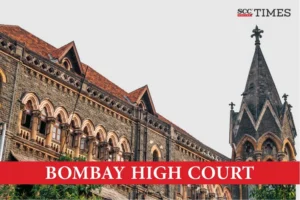Bombay High Court: In a case wherein, the petitioners filed the present petition before this Court to appoint them as a guardian of their father, who suffered from Hypoxis Ischemic Encephalopathy, a brain injury and was incapable of communication and taking care of his basic personal needs, a Single Judge Bench of Abhay Ahuja, J., held that the condition of the petitioners’ father was of mental illness, disorder, disability, and incapacity and a person in a state of lunacy who was incapable of taking care of himself or managing his property, over whose person and estate, this Court could exercise power and authority under Clause XVII of the Letters Patent. The Court thus appointed the petitioners, acting jointly and/or severally, as the Guardians of the person and the Managers of the properties of their father.
Background
The petitioners’ father, Pervez Nadir Dumasia, was 72 years old, in July 2024, when the present petition was filed, and he suffered from Hypoxis Ischemic Encephalopathy, a brain injury resulting from deprivation of oxygen and blood supply during a cardiac arrest. Therefore, he had been in a semi-conscious, incapacitated state, was bedridden and suffered from long-term neurological disability. He was incapable of communication, could not take care of his basic personal needs and was undergoing treatment at home, which was converted into an ICU and required constant care and assistance from nurses and attendants.
The expert doctors and physicians certified that the petitioners’ father was unable to understand the nature, extent or probable consequences of actions or take informed decisions, He could not make a rational evaluation of the burdens, risks, and benefits of any decisions, while also being incapable of communicating and managing his assets and properties.
Counsel for the petitioners submitted that the petitioners’ mother being of advanced age consented to the appointment of the petitioners as guardians of her husband and managers of his properties, as she was of advanced age and it was not feasible for her to independently manage the extensive medical treatment, continuous care, and the affairs concerning his assets, properties, and finances.
Analysis, Law, and Decision
The Court referred to the definition of an “idiot” as per the Black’s Law Dictionary as referred to in Clause XVII of the Letters Patent, which means a person who was afflicted with profound mental retardation. The Court opined that this was not a case of mental retardation, thus, the condition suffered by the petitioners’ father was not of an idiot.
The Court referred to Section 2(i) of the Persons with Disabilities (Equal Opportunities, Protection of Rights and Full Participation), Act, 1995, which stated that ‘disability’ meant, (i) blindness; (ii) low vision; (iii) leprosy-cured; (iv) hearing impairment; (v) locomotor disability; (vi) mental retardation; and (vii) mental illness. The term “mental illness” was defined in Section 2(s) under the Mental Healthcare Act, 2017, to mean a substantial disorder of thinking, mood, perception, orientation or memory that grossly impairs judgment, behaviour, capacity to recognize realty or ability to meet the ordinary demands of life, mental conditions associated with the abuse of alcohol and drugs but does not include mental retardation. The Court opined that the condition suffered by the petitioners’ father was a case of mental illness, though it might have arisen due to a cardiac arrest.
The Court thus opined that such mental illness or disorder or disability or incapacity, where the person was incapable of taking care of himself or managing his property, could said to be a state of lunacy and by virtue of Clause XVII of the Letters Patent, this Court would have the authority and jurisdiction with respect to the person and the estate of such a lunatic within Bombay Presidency.
The Court opined that the higher courts of our country exercise the parens patriae jurisdiction as they could not be mute spectators to a real-life situation like the one before this Court. Further, Clause XVII of the Letters Patent empowered this Court to exercise jurisdiction over mentally incapacitated persons, in the absence of any statutory or legislative bar and to fill up the vacuum.
The Court relied on Deepa Asani, In re, 2021 SCC OnLine Cal 2148, and C. Raghuraman, In re, 2022 SCC OnLine Mad 9174 and subject to the undertaking given to this Court at the time of the Interim Order dated 23-1-2025, allowed the petition and appointed the petitioners, acting jointly and/or severally, as the Guardians of the person and the Managers of the properties of their father.
The Court further authorized the petitioners to do all acts, deeds, and things for the proper medical treatment, nursing care, welfare, and benefit of their father. The Court also declared that the petitioners were authorised to take all such decisions necessary and incidental for the welfare and benefit of their father, and maintenance of his property and assets, and to utilize the proceeds thereof solely for the benefit and upkeep of their father.
[Vahbiz Pervez Dumasia, In re, 2025 SCC OnLine Bom 2045, decided on 8-5-2025]
Advocates who appeared in this case :
For the Petitioners: Jahangir Jeejeebhoy with Nupur Desai i/b Markand Gandhi & Co. for the Petitioners.

